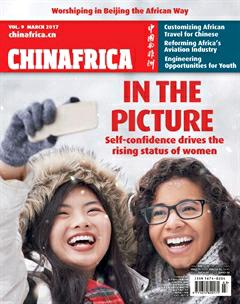Keywords to Understand China
“Improving global economic governance”
THE goal of improving global economic governance is to transform economic globalization into a balanced, win-win process that brings benefits to all. The process has to be balanced so as to accommodate the needs of both developed and developing countries, and address their concerns. It should ensure that real results and benefits will accrue to all countries and their people. It should be a win-win game in which the interests and development needs of individual countries are interlocked and coordinated. Global economic governance requires the participation of all countries, and in particular enhanced representation of and a bigger say for emerging markets and developing countries.
“The Belt and Road Initiative”
THE Belt and Road Initiative refers to the proposal to build a Silk Road Economic Belt and a 21st Century Maritime Silk Road. During his visits to Central and Southeast Asia in September and October 2013, Chinese President Xi Jinping unveiled the plans to implement this initiative in cooperation with related countries. The five pillars of the concept are policy coordination, connectivity of facilities, unimpeded trade, financial integration, and strengthened people-to-people ties.
A steering group has been set up in China to facilitate the implementation of this initiative, and close consultation has been on-going with the countries along the land and sea Silk Roads. A white paper entitled Vision and Actions on Jointly Building the Silk Road Economic Belt and the 21st Century Maritime Silk Road was published in March 2015.
“Common but differentiated responsibilities”
THE principle of “common but differentiated responsibilities” began to win general acceptance in the early 1970s. The United Nations Conference on the Human Environment, held in Stockholm in 1972, declared that the protection and improvement of the human environment was the duty of the whole world. It also drew attention to the fact that environmental deficiencies in developing countries are themselves generated by the conditions of underdevelopment. This concept constitutes an essential element of the principle of “common but differentiated responsibilities.”
The principle was written into Article 4 of the United Nations Framework Convention on Climate Change adopted in 1992. Under this principle, developed countries should take the lead in emissions reduction and provide support in terms of finance and technology to developing countries, while developing countries should apply this financial and technological support to actions designed to mitigate or adapt to climate change. Notwithstanding, economic and social development and poverty eradication still remain the first and overriding priorities for the developing world.
China has never forsaken this principle in any of the international climate negotiations in which it has participated.
“Silk Road Fund”
ON November 8, 2014, President Xi Jinping announced that China would invest $40 billion to set up the Silk Road Fund. The fund will support the development of infrastructure and resources, and industrial cooperation, among other projects, in the countries along the land and sea Silk Roads. It will serve as a complement to, rather than a substitute for, other global and regional multilateral development banks, and will operate under the existing international economic and financial order. Instead of simply dispensing economic aid, the fund will create major development opportunities for all through increased connectivity. It is open and welcomes the active participation of investors from Asia and beyond. Its establishment will spur the implementation of the Belt and Road Initiative and promote regional connectivity.
“The spirit of the Silk Road”
THE historical trade route known as the Silk Road was also a platform for people-to-people and cultural exchanges, where people from various ethnic, racial, religious and cultural backgrounds met and assimilation occurred. Embodying peace, cooperation, openness, inclusiveness, eagerness to learn from each other, and mutual benefit, the spirit of the Silk Road has been passed down through generations for thousands of years. China and other countries along the Silk Road have all along supported and helped each other in their efforts to defend national dignity and sovereignty, explore approaches to development, and bring about national renewal. By learning from each other, they have benefited from expanded people-to-people and cultural exchanges and national cultural revitalization drives.
President Xi Jinping proposed a new initiative to promote the Silk Road spirit in the new era to boost interaction and exchanges between civilizations. The initiative calls for respect for the chosen approaches to development of individual countries, and promotion of peace through mutually beneficial cooperation and dialogue.

